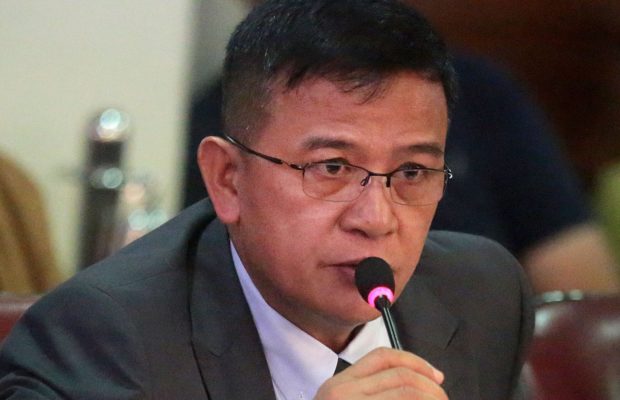The government lost P43.8 billion in 12 months to “endemic and ingrained” corruption in the Bureau of Customs (BOC) under the helm of former Commissioner Nicanor Faeldon, according to the House ways and means committee.
The House panel chaired by Quirino Rep. Dakila Cua calculated revenue losses from July 2016 to July this year at P43.8 billion resulting from the undervaluation of 284,130 containers, with an estimated revenue loss of P154,000 per container.
But the committee said the impact of corruption was bigger than the sum of lost revenues. “Indeed, the effect of corruption within the bureau is so huge that it affects the country as a whole,” it said.
In a report, the committee recommended charges against Faeldon, who quit his post in August, and several other customs officials and consultants, and sought the grant of emergency powers for President Duterte to deal with the crisis in the agency.
Culture of corruption
It also recommended that the BOC be split into two agencies, with one tasked to assess and collect import duties and taxes and the other to police the ports and enforce border control.
The committee had spent weeks for a motu-propio investigation into the smuggling of P6.4 billion worth of illegal drugs in the country through the BOC. A separate investigation was conducted by the dangerous drugs committee, which separately recommended charges against Faeldon and BOC officials.
The ways and means panel said its inquiry focused on corruption within the BOC than illegal drug shipments, and found that “there exists an endemic and ingrained system of corruption within the bureau.”
“It already became a culture for bureau personnel to collect grease money or ‘tara’ from customs players every Friday afternoon. In return, these players are able to facilitate the swift release of their clients’ shipments, pay lower duties and taxes, and avoid harassment and alert orders from the bureau,” the Cua panel said.
‘Tara system’
“In order to systemize the entire tara system, benchmarking was resorted to by both corrupt bureau personnel and customs players. Presently, imported shipments are benchmarked at P40,000 per container regardless of the value of the imported goods,” it said.
To further systemize the corruption within the bureau, Faeldon created the Command Center or ComCen, the committee said.
“Commissioner Faeldon removed the powers of the various bureau offices to issue and lift alert orders, and centralized it into the ComCen. By doing so, Commissioner Faeldon and his cohorts used the ComCen as conduit of corruption, and monopolizing the collection of tara from customs players,” the panel said.
To aggravate the matter, Faeldon engaged “incompetent, willful and neglectful bureau personnel who are not qualified for the job.”
“Majority of the Deputy Commissioners appointed were not organic from the bureau, and had little or no experience in customs practice. Former military men who are considered of close personal relations to Commissioner Faeldon assumed 13 top posts in the bureau or were appointed as district collectors,” the committee said.
The Cua panel recommended, among others, that the BOC be replaced by two new bureaus exercising separate powers and functions: the Bureau of Customs Service, and the Bureau of Security Control.
It said the change should happen under a two-year transition process to establish a fully operational system.
Pending the transition, the committee recommended the grant of emergency powers to the President pursuant to Section 23 of Article VI of the Constitution.
